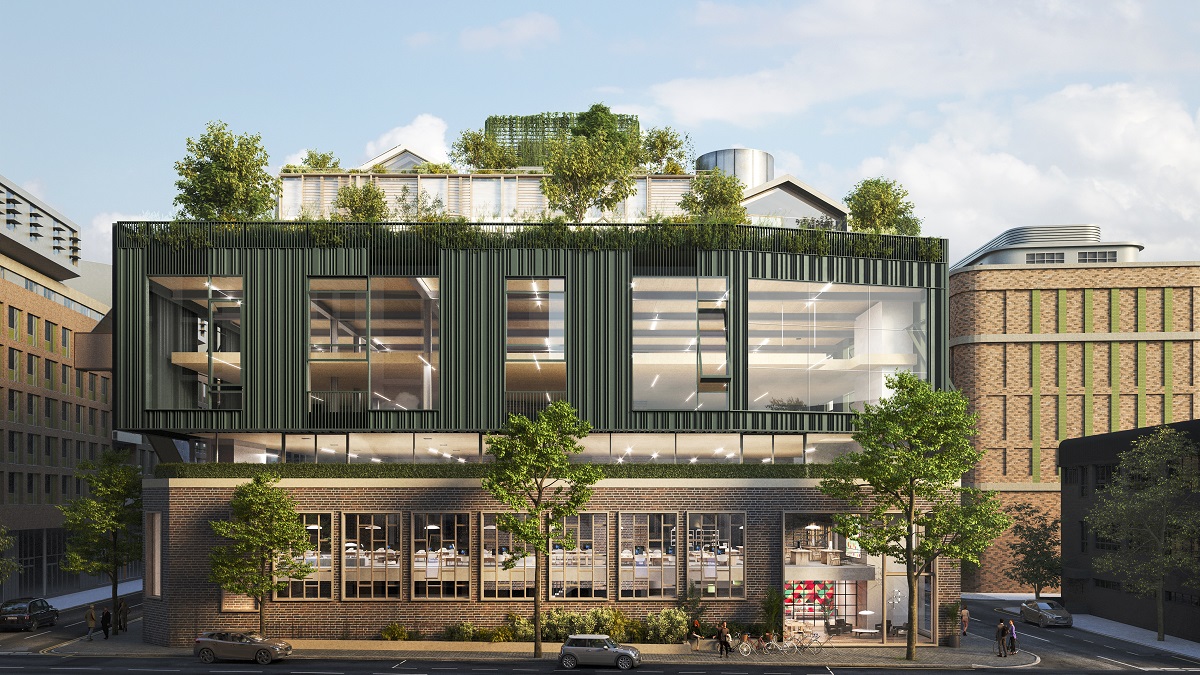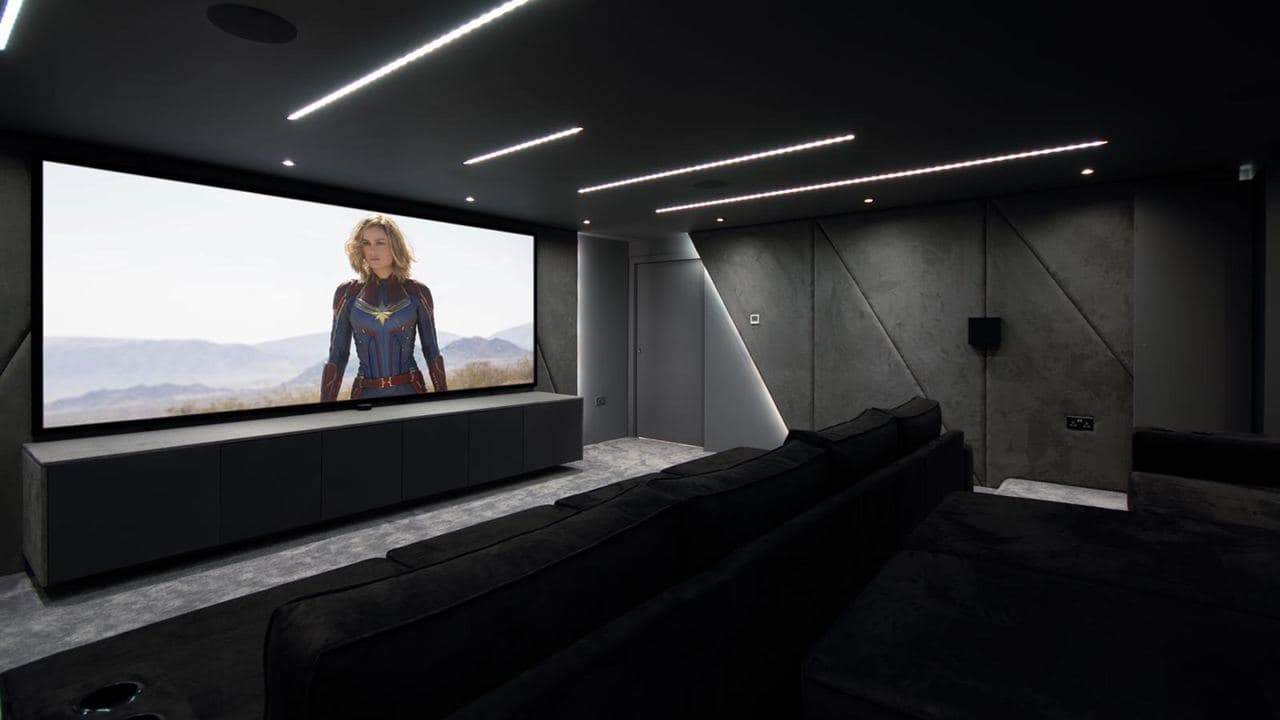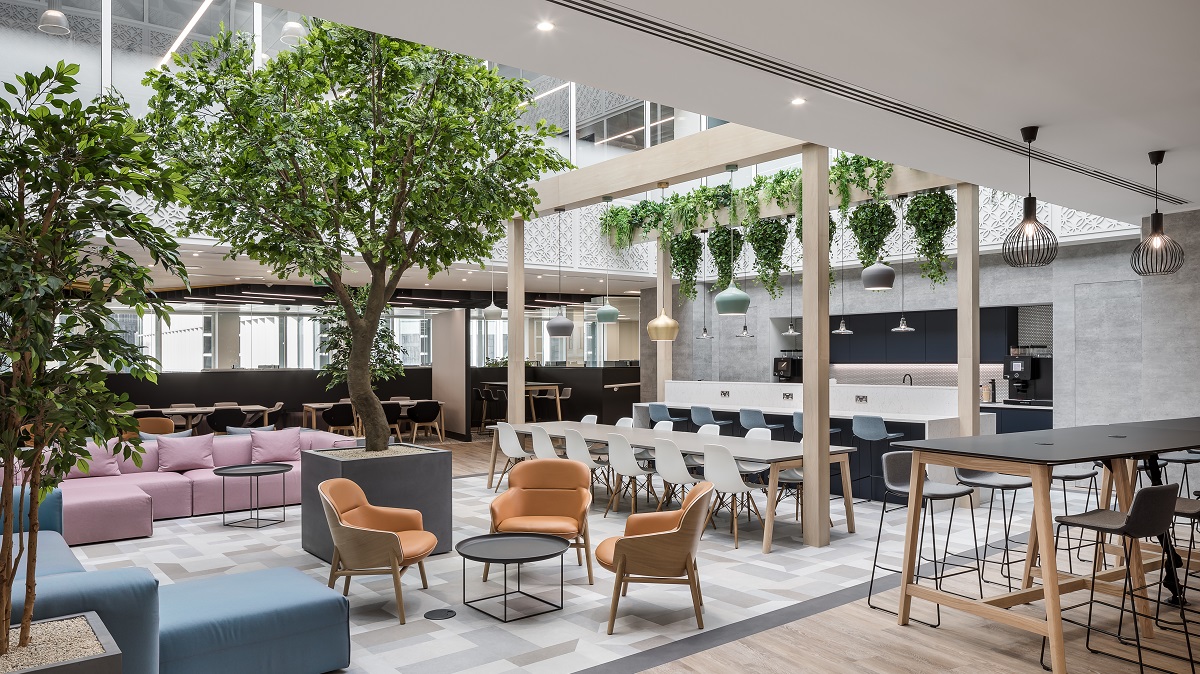Many people have grown so fond of remote working that employers are having to make HQ a more enticing environment. But are rooftop pools and cinemas really what employees want?

Once the employees of Samuel & Co Trading return to their base in Watford, they will be greeted by an array of new wellness benefits. They’ll be able to check their emails while working out in the refurbished gym, spend lunchtime relaxing in the steam room and round off their day with a film screening in the company’s own cinema.
The stock trading and training firm has spent £200,000 on the redesign, which also incorporates a meditation space, a pool table and games consoles. Its founding director, Samuel Leach, says that the lockdowns gave him the chance to completely rethink the office space.
“The pandemic provided a good opportunity for us to get a new base sorted and to make it an enjoyable workplace,” he says. “We’ve been trying to work out how we can help our staff benefit from going back to the office, encouraging people to return to an environment they haven’t been in for well over a year.”

You’ve got to promote a new mindset and culture because if you don’t, you’re not going to make the most of the space
Now that lockdown restrictions are easing again, it’s an issue that many businesses are considering. When the University of Strathclyde surveyed more than 3,000 people who’d been obliged to work remotely during the Covid crisis, it found that fewer than 10% wanted to be back working at HQ on a full-time basis, while 31% would happily never set foot in the office again.
Such attitudes present a problem for the many business leaders who are keen to bring their teams together and recapture the sense of collaboration that video meetings struggle to engender.
Landlords and commercial property developers are also flexing their creative muscle in a bid to attract new tenants. For instance, property firm Bruntwood Works has installed sleep pods, yoga studios and a podcast room at its Blackfriars House offices in Manchester.

The company’s CEO, Ciara Keeling, believes that by bringing some of the home comforts into the office it will “help businesses to power up creativity, enhance productivity and generate ideas”.
The transition to a hybrid model of working, where employees are required to come to HQ only a few times a week, has put less demand on desk space. This has given designers more room to play with, leading to what Keeling calls the “evolution of workspaces into more creative and less structured spaces”.
Online authentication platform Okta is also re-evaluating its approach, with plans to provide a series of “experience centres” to complement its head office. Its recently appointed head of dynamic work, Samantha Fisher, explains that these smaller offices will “function similarly to Apple stores”, enabling customers and employees to “immerse themselves in company culture, receive product demos, have meetings and work when they need to”.
Bringing nature into the office
Not all offices are relying on tech-driven enticements. For instance, property investor Fabrix hopes that a 0.5ha rooftop forest will be the unique selling point that attracts tenants to its new office development.
Based on the site of the old Blackfriars Crown Court in London, the complex will feature more than 100 trees, 10,000 plants and a glass-bottomed swimming pool.
The company’s CEO, Clive Nichol, believes that these surroundings will be able to lift the occupants’ moods. “People have become more connected to nature over lockdown and we’re more aware of the value it can have for individuals,” he says. “Yet this is something that’s rarely thought about in the workplace.”
Nichol observes that “incorporating nature in the design helps to soften the working environment. If you are working in a tall glass tower, you’re focused on corporate outcomes. If you are in a building that has more of these sensitivities, you’re able to act in a more human and balanced way.”

Design details
Although not all companies will be able to cultivate their own forests, of course, there are some simple, yet crucial, alterations that they and commercial landlords can make to future-proof their workplaces. So says Dominic Dugan, director at Oktra, an office design company whose clients have included M&C Saatchi, Gymshark and Adidas.
“For the first time, employees are picking up on the intricate details that allow them to get into the office more easily and work there in a safe, positive and interactive manner,” he says. “I’ve seen an office with a golf course in the middle of it that doesn’t get used. Such things are great for attracting talent, but they do nothing for retention. When you’re looking to persuade people to return, they simply want an office that performs.”
For Dugan, this means making adjustments to improve air quality and acoustic performance, creating flexible meeting rooms and providing well-equipped changing facilities for people who want to cycle or run to work. “It’s about having all those stepping stones to bring you comfortably to your workplace, get yourself settled quickly and embed yourself in the company’s culture,” he says.

Health and safety is also a key consideration when creating office spaces for a post-Covid world. Many businesses have noticed a heightened level of concern among employees about hygiene. A survey of workers by wireless sensor developer Disruptive Technologies in April found that more than half of respondents were afraid to return to their offices because they were worried about the level of cleanliness.
These anxieties are being reflected in office design, according to Dugan, who says: “Leaving the pandemic to one side, the office was a really unhygienic place. Aspects such as air quality are being picked up and invested in for the first time. Some companies are spending a lot of money on touchless doors.”
Flexibility as important as design
As many companies move to a hybrid working model, enabling a smooth transition from remote working to the office will also be important. British clothing brand Joules became acutely aware of this when designing its new HQ, known by staff as The Barn.
Construction of the firm’s purpose-built office on the outskirts of Market Harborough in rural Leicestershire began before the pandemic. But it soon became clear that the space needed alterations to suit the more flexible working methods adopted by the business since the Covid crisis started.

The Barn was originally meant to accommodate more than 500 employees. But the company’s CEO, Nick Jones, anticipates that only about about half of that number will be using the office at any one time.
“Fortunately, we had the advantage of starting with a blank canvas,” he says. “We haven’t had to repurpose an old building; we’ve been able to reshape or adjust the space with flexible and remote working in mind.”
I’ve seen offices with a golf course in the middle of the room and it doesn’t get used. Things like that are great for attracting talent but it does nothing for retention
These changes have enabled Joules to expand the central atrium and create more room between desks. Each meeting room is equipped with audiovisual tech enabling remote workers to call in, while outdoor features, including a bug hotel, help to connect the space to the company’s countryside heritage.
Despite the many alterations to the multi-million-pound building, a change in company culture will be equally important for the Jones in determining the success of the new HQ. “Rethinking the practical ways of working is as important as creating a conducive space,” he says. “You have to promote a new mindset and culture. If you don’t, you’re not going to make the most of the space.”
The next few months will therefore be a crucial period for Joules’s new home. “None of us will have got these changes completely correct,” Jones admits. “We’ll definitely need to learn and adjust to continually improve the space and our ways of working.”
Related Articles
Many people have grown so fond of remote working that employers are having to make HQ a more enticing environment. But are rooftop pools and cinemas really what employees want?

Once the employees of Samuel & Co Trading return to their base in Watford, they will be greeted by an array of new wellness benefits. They’ll be able to check their emails while working out in the refurbished gym, spend lunchtime relaxing in the steam room and round off their day with a film screening in the company’s own cinema.
The stock trading and training firm has spent £200,000 on the redesign, which also incorporates a meditation space, a pool table and games consoles. Its founding director, Samuel Leach, says that the lockdowns gave him the chance to completely rethink the office space.
